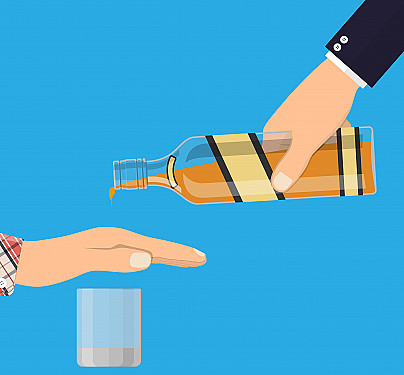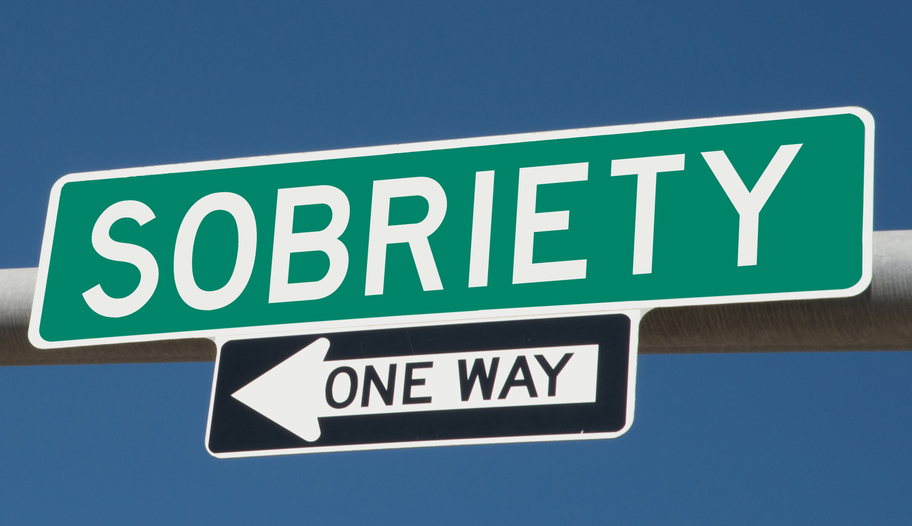Sobriety can be a difficult journey, but it is also an incredibly rewarding one. If you are new to recovery, or if you are considering sobriety for the first time, you may be feeling a little lost. Don’t worry – we are here to help! In this blog post, we will provide you with a guide to sobriety that will help make the transition easier for you. We will discuss what sobriety is, how to achieve it, and the benefits of living a sober life. So whether you are just starting out on your recovery journey or if you have been sober for years, this blog post is for you.
Contents
- 1 What Is Sobriety?
- 2 Why Do You Need Sobriety?
- 3 How To Achieve Sobriety?
- 3.1 Get Help From Treatment Center
- 3.2 Make Lifestyle Changes
- 3.3 Find Support Group
- 3.4 Learn Your Triggers
- 3.5 Stay Positive
- 3.6 Build Social Interaction
- 3.7 Start Today
- 3.8 Make Time Schedule
- 3.9 Practice Healthy Habits
- 3.10 Make Plan
- 3.11 Seek Professional Help
- 3.12 Stay Cool
- 3.13 Learn From Your Past Mistakes
- 3.14 Stay Out of Risky Situations
- 3.15 Practice Self-Care
- 4 Tips To Keep In Mind While Practicing Sobriety
- 5 Benefits of Sobriety
- 6 Conclusion
- 7 A Word From Therapy Mantra
What Is Sobriety?
 Sobriety is the state of being sober. It can also refer to a life free from addiction and substance abuse. For many people in recovery, sobriety is the goal.
Sobriety is the state of being sober. It can also refer to a life free from addiction and substance abuse. For many people in recovery, sobriety is the goal.
Sobriety is not just about abstaining from drugs and alcohol. It’s also about making lifestyle changes that support your recovery. This might include things like getting rid of old friends who still use drugs, changing your living situation, or finding a new job.
Making these changes can be difficult, but they are necessary for maintaining sobriety in the long term. It also means having a support system in place to help you through tough times.
Why Do You Need Sobriety?

There are many reasons why someone might want to achieve sobriety.
Realization of Bad-effects of Substance Abuse
Once you have realized that substance abuse is causing more harm than good in your life, you may be ready to make a change. You may have realized that your substance abuse is causing problems at work, in your relationships, or with your health. It may also be causing financial problems or making it difficult to meet your responsibilities.
Health Problems from Substance Abuse
Substance abuse can lead to a variety of health problems, both short- and long-term. These include addiction, overdose, heart disease, stroke, liver damage, and cancer. This can lead to hospitalization, expensive medical bills, and even death. Sometimes, the only way to overcome these health problems is to achieve sobriety. It may also mean that you need to get treatment for your addiction.
Relationship Problems from Substance Abuse
Substance abuse can also cause problems in your relationships. It may make it difficult to communicate with your partner or spouse, and you may find yourself fighting more often. Substance abuse can also lead to infidelity, domestic violence, and divorce. If you have children, substance abuse can put a strain on your relationship with them as well.
Achieving sobriety can help you repair these damaged relationships and build new, healthier ones. It can also help you avoid future problems in your relationships.
Work Problems from Substance Abuse
Substance abuse can cause a variety of problems at work. You may find yourself missing work more often, or you may be late for work more often. You may also have trouble concentrating or completing tasks. Substance abuse can also lead to job loss, as well as legal problems.
Achieving sobriety can help you regain your focus at work and avoid these problems. It can also help you maintain your job and stay out of legal trouble.
Financial Problems from Substance Abuse
Substance abuse can cause a variety of financial problems. This includes spending money on drugs or alcohol, missing bills payments, borrowing money from friends or family, and committing crimes to get money for drugs or alcohol. Achieving sobriety can help you take control of your finances and get your life back on track.
How To Achieve Sobriety?

There are many tips on how to achieve sobriety, and the most important thing is to find what works for you.
Get Help From Treatment Center
If you are struggling with addiction, one of the best things you can do is get help from a treatment center. Treatment centers can provide you with the resources you need to overcome addiction and achieve sobriety. They can also help you make lifestyle changes that support your recovery. Sometimes, you may need to stay in a treatment center for a period of time to get the help you need.
Make Lifestyle Changes
Making lifestyle changes is another important step in achieving sobriety. This might include things like getting rid of old friends who still use drugs, changing your living situation, or finding a new job. Making these changes can be difficult, but they are necessary for your recovery.
Find Support Group
 Another important tip on how to achieve sobriety is to find a support group. Support groups provide a safe and supportive environment for people in recovery. They can offer advice and encouragement when times are tough. There are many different types of support groups, so it’s important to find one that fits your needs. It all starts with making the decision to get sober and seeking out the help you need. Sobriety is possible, and it’s worth fighting for.
Another important tip on how to achieve sobriety is to find a support group. Support groups provide a safe and supportive environment for people in recovery. They can offer advice and encouragement when times are tough. There are many different types of support groups, so it’s important to find one that fits your needs. It all starts with making the decision to get sober and seeking out the help you need. Sobriety is possible, and it’s worth fighting for.
Learn Your Triggers
Triggers can also contribute to a relapse. A trigger is anything that causes you to crave drugs or alcohol. Triggers can be things like certain people, places, or things. It’s important to learn your triggers and find ways to avoid them. You can also find ways to cope with them if you can’t avoid them entirely. It can be helpful to talk to your therapist or sponsor about your triggers.
Stay Positive
Staying positive is an important part of recovery. It can be difficult to stay positive when you’re going through tough times, but it’s crucial for your success. When things get tough, remind yourself why you want to be sober and focus on the good things in your life. This is not an easy process, but with time and patience, you can do it. Sobriety is worth fighting for, and there is help available if you need it.
Build Social Interaction
 Social interaction is an important part of sobriety. It can help you stay connected to others and avoid isolation. There are many different ways to build social interaction, such as attending support groups, going to 12-step meetings, or participating in sober activities. You can also build social interaction by volunteering or networking. It can be helpful to find sober friends who can support you in your recovery.
Social interaction is an important part of sobriety. It can help you stay connected to others and avoid isolation. There are many different ways to build social interaction, such as attending support groups, going to 12-step meetings, or participating in sober activities. You can also build social interaction by volunteering or networking. It can be helpful to find sober friends who can support you in your recovery.
Start Today
If you’re ready to get sober, the best thing you can do is start today. There are many resources available to help you, and it’s important to reach out for help if you need it. Sobriety is possible, and there is no shame in asking for help. It can be hard to take the first step, but it’s worth it in the end.
Make Time Schedule
 Making time for sobriety is important. This might include things like setting aside time for sober activities, making time to attend support groups, or making time to see your therapist. It’s important to find what works for you and make sobriety a priority. It’s also important to be patient and take things one day at a time. Sobriety is not easy, but it’s worth it in the end.
Making time for sobriety is important. This might include things like setting aside time for sober activities, making time to attend support groups, or making time to see your therapist. It’s important to find what works for you and make sobriety a priority. It’s also important to be patient and take things one day at a time. Sobriety is not easy, but it’s worth it in the end.
Practice Healthy Habits
Practicing healthy habits is another important part of sobriety. This might include things like eating healthy, getting enough sleep and exercising. These habits can help you feel better physically and emotionally. It’s important to find what works for you and stick with it.
Make Plan
 Making a plan is an important part of achieving sobriety. This might include things like setting goals, creating a relapse prevention plan or writing down your triggers. Having a plan helps you stay focused on your goal of sobriety. It also helps you know what to do when times get tough.
Making a plan is an important part of achieving sobriety. This might include things like setting goals, creating a relapse prevention plan or writing down your triggers. Having a plan helps you stay focused on your goal of sobriety. It also helps you know what to do when times get tough.
Seek Professional Help
If you’re struggling with addiction, one of the best things you can do is get help from a professional. There are many different types of treatment available, and it’s important to find what works for you. It all starts with making the decision to get help and taking that first step. Sobriety is possible, and there is no shame in asking for help.
Stay Cool
Being cool is another important part of sobriety. This means staying calm and collected during tough situations. It’s important to stay in control of your emotions and not let them get the best of you. When things get tough, take a step back and assess the situation. Don’t make any rash decisions and try to stay positive. It may be difficult but it’s important to remember that sobriety is worth fighting for.
Learn From Your Past Mistakes
Past mistakes are an important part of learning how to be sober. It’s crucial to learn from your mistakes and not make the same ones again. This might include things like journaling, talking to a therapist, or attending 12-step meetings. It’s also important to forgive yourself for past mistakes and move on. Sobriety is a process, and it takes time and patience to achieve success.
Stay Out of Risky Situations
 Risky situations are a part of life, but it’s important to stay away from them when you’re in recovery. This might mean avoiding certain people or places, setting boundaries, or saying no to drugs and alcohol. It’s important to know your triggers and avoid them at all costs. If you find yourself in a risky situation, it’s important to remove yourself from it as quickly as possible.
Risky situations are a part of life, but it’s important to stay away from them when you’re in recovery. This might mean avoiding certain people or places, setting boundaries, or saying no to drugs and alcohol. It’s important to know your triggers and avoid them at all costs. If you find yourself in a risky situation, it’s important to remove yourself from it as quickly as possible.
Practice Self-Care
Self-care is an important part of sobriety. This might include things like taking time for yourself, participating in sober activities, or doing things that make you happy. It’s important to find what works for you and stick with it. Sobriety is a journey, and it’s important to take care of yourself along the way. There can be many ups and downs, but remember that sobriety is worth it in the end.
Tips To Keep In Mind While Practicing Sobriety

There are many tips that one should keep in mind while practicing sobriety. Here are some key points to remember:
- Sobriety is a journey, not a destination. There is no one right way to achieve or maintain sobriety and what works for one person might not work for another. Be patient with yourself and keep exploring different options until you find what works best for you.
- Recovery takes time. It’s important to be realistic about how long it will take to get your life back on track after quitting drinking or using drugs. Don’t expect miracles overnight – give yourself time to heal both physically and emotionally.
- Change won’t happen overnight. If you’ve been struggling with addiction for a long time, it’s likely that there are many aspects of your life that need to change. It’s important to take things one step at a time and not try to do too much all at once.
- You are not alone. Sobriety can be a lonely journey, but it doesn’t have to be. There are many resources available to help you on your path to recovery, including support groups, counseling, and online forums. Don’t be afraid to reach out for help when you need it.
- Sobriety is possible – no matter how hopeless you may feel right now, know that recovery is possible if you’re willing to put in the work. Believe in yourself and never give up hope. These tips can help you on your sobriety journey!
Benefits of Sobriety

There are many benefits of sobriety that go beyond simply not drinking or using drugs. Some of these benefits are:
Gives Clarity of Mind
Sobeiry offers clarity of mind. When you’re no longer under the influence of drugs or alcohol, it’s easier to think clearly and make better decisions. This newfound clarity can help you in all areas of your life, from your relationships to your career. It also gives you a better chance of spotting early warning signs of relapse and taking steps to prevent it.
Promotes Improved Health
Sobriety also promotes improved physical health. Alcohol and drug abuse takes a toll on your body, and quitting can help reverse some of the damage. You may have more energy, better sleep, and improved digestion. Your skin may clear up, and you may even lose weight. These changes can boost your self-esteem and confidence, which can lead to even more positive changes in your life.
Builds Lasting Relationships
Substance abuse often causes problems in relationships. Sobriety can help you build or improve upon relationships with family members, friends, co-workers, and others. When you’re sober, you’re more likely to be present and engaged in conversations. You may also find that you have more in common with people who don’t abuse drugs or alcohol. These relationships can provide support and guidance during difficult times, which can help keep you on the path to recovery.
Conclusion
Sobriety is one of the most difficult things a person will ever go through in their life. It is not easy, but it is possible. The first step is always the hardest, but it is also the most important. After that, each day becomes a little bit easier. Eventually, sobriety becomes second nature.
If you or someone you know is struggling with addiction, please reach out for help. There are many resources available to those who need them. Sobriety is attainable for everyone, no matter how hopeless it may seem at first. Recovery is possible; don’t give up hope. There are many different paths to recovery and sobriety looks different for everyone. No single method works for everyone, so it’s important to find the path that works best for you.
A Word From Therapy Mantra
Your mental health — Your psychological, emotional, and social well-being — has an impact on every aspect of your life. Positive mental health essentially allows you to effectively deal with life’s everyday challenges.
At TherapyMantra, we have a team of therapists who provide affordable online therapy to assist you with issues such as depression, anxiety, stress, workplace Issues, addiction, relationship, OCD, LGBTQ, and PTSD. You can book a free therapy or download our free Android or iOS app.


